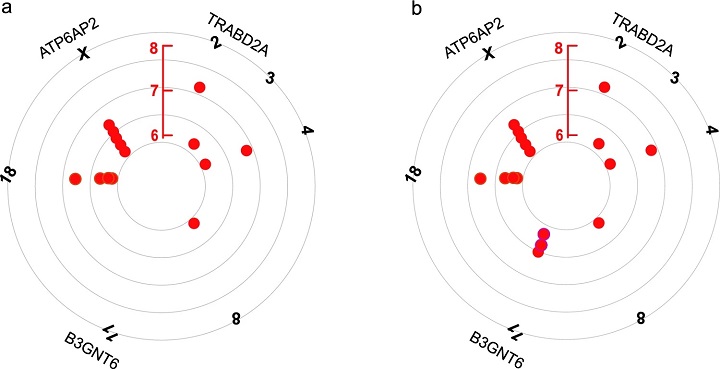SARS-CoV-2 Infection And COVID-19 Hospitalization Increases The Susceptibility Of Multiple Myeloma!
Nikhil Prasad Fact checked by:Thailand Medical News Team Feb 27, 2024 1 year, 11 months, 3 weeks, 5 hours, 10 minutes ago
COVID-19 News: In the wake of the global COVID-19 pandemic caused by the SARS-CoV-2 virus, extensive research efforts have been dedicated to understanding the diverse clinical manifestations and potential associations between COVID-19 and various health conditions. Among these, multiple myeloma (MM), a hematological disorder characterized by clonal proliferation of plasma cells, has emerged as a subject of interest. While observational studies have explored the potential link between COVID-19 and MM, the findings have been inconsistent and often contradictory. To shed light on this complex relationship, researchers from Zhengzhou University and The First Affiliated Hospital of Zhengzhou University in Henan, China, undertook a groundbreaking study that is covered in this
COVID-19 News report, utilizing advanced Mendelian randomization (MR) analysis techniques to uncover the causal links between different COVID-19 traits and MM.
 Circular Manhattan plot of significant SNP correlation with multiple myeloma (MM). a The significant SNP correlation with MM before MTAG analysis; b the significant SNP correlation with MM after MTAG analysis
Methods
Circular Manhattan plot of significant SNP correlation with multiple myeloma (MM). a The significant SNP correlation with MM before MTAG analysis; b the significant SNP correlation with MM after MTAG analysis
Methods
The study employed a bidirectional two-sample MR analysis, leveraging the most recent COVID-19 genome-wide association studies (GWAS) data and MM data obtained from the FinnGen GWAS database. The traits under investigation included SARS-CoV-2 infection, COVID-19 hospitalization, severe COVID-19, and MM. In addition to MR analysis, the researchers incorporated multi-trait analysis of GWAS (MTAG), fine-mapping, co-localization analysis, and over-representation enrichment analysis to identify novel single nucleotide polymorphisms (SNPs) and potential biological pathways associated with MM.
Results
Heritability analysis formed the foundation of the study, revealing that all three COVID-19 traits (SARS-CoV-2 infection, COVID-19 hospitalization, and severe COVID-19) and MM were heritable. This crucial insight set the stage for the subsequent MR analysis. The bidirectional MR analysis results unveiled a significant positive effect of both SARS-CoV-2 infection and COVID-19 hospitalization on MM susceptibility. Notably, the reverse causal relationship was not observed, underscoring the specificity of the association between COVID-19 traits and MM.
MTAG analysis added another layer of depth to the study, identifying three novel SNPs associated with MM, clustered around the B3GNT6 gene. This gene, linked to autoimmune diseases and DNA repair, provided intriguing clues to the potential genetic mechanisms at play. Co-localization analysis further elucidated the causal relationship, highlighting genes such as LZTFL1, MUC4, OAS1, HLA-C, SLC22A31, FDX2, and MAPT as potential mediators in the COVID-19-induced causation of MM.
Analysis of shared genetic loci pinpointed specific regions on chromosomes 3, 6, 12, and 19 as contributors to the causal effect of both SARS-CoV-2 infection and COVID-19 hospitalization on MM. Over-representation enrichment analysis underscored the importance of immune response-related pathways, glycosylation
modifications, and defense response to viruses as crucial biological processes implicated in the COVID-19-MM association.
Discussion
Multiple myeloma poses a significant health challenge, characterized by clonal proliferation of plasma cells and resulting in immune deficiencies in affected patients. Understanding the relationship between MM and COVID-19 is paramount, given the potential implications for disease management and treatment strategies. The study's findings provide compelling evidence supporting a presumed causal relationship between SARS-CoV-2 infection, COVID-19 hospitalization, and MM. Moreover, the bidirectional MR analysis serves as a powerful tool, allowing for the differentiation between upstream and downstream effects, ultimately demonstrating that COVID-19 may trigger autoimmunity and induce autoimmune diseases, including MM.
The integration of MTAG with co-localization analysis uncovered three novel SNPs associated with MM, clustered around the B3GNT6 gene. This gene, associated with autoimmune diseases and DNA repair, adds a layer of complexity to our understanding of the genetic underpinnings of MM. The MR + COLOC analysis method implicated genes such as MUC4, HLA-C, and SLC6A20 in the causal pathway between COVID-19 traits and MM, emphasizing their roles in immune processes and glycosylation modifications.
Conclusion
In conclusion, this pioneering study represents a significant leap forward in unraveling the intricate relationship between SARS-CoV-2 infection, COVID-19 hospitalization, and the susceptibility of multiple myeloma. The meticulous use of advanced Mendelian randomization analysis techniques, coupled with comprehensive genomic data, has unearthed novel SNPs, genes, and biological pathways implicated in the complex interplay between COVID-19 and MM. These findings not only contribute to our understanding of the relationship between COVID-19 and MM but also offer valuable insights for future studies on potential pathogenesis and therapeutic targets for MM.
The study's implications extend beyond the specific relationship investigated, providing a blueprint for future research endeavors seeking to uncover the complex interplay between infectious diseases and underlying genetic susceptibilities
While the study acknowledges certain limitations, such as the use of GWAS data predominantly from European ancestry populations, its findings pave the way for further investigations and underscore the need for diverse representation in genomic studies. Additionally, the indirect highlighting of causal genes and pathways necessitates further confirmatory analyses, emphasizing the importance of ongoing research in this field.
In essence, this comprehensive study not only expands our understanding of the interplay between COVID-19 and MM but also exemplifies the potential of advanced genomic analysis techniques in unraveling complex disease relationships. The integration of MR, MTAG, and pathway analysis provides a holistic view, offering researchers and clinicians valuable insights into the underlying mechanisms of disease susceptibility and potential avenues for therapeutic intervention. As we continue to navigate the evolving landscape of infectious diseases and their interactions with our genetic makeup, studies of this caliber will undoubtedly play a pivotal role in shaping the future of precision medicine and personalized healthcare.
The study findings were published in the peer reviewed journal: Clinical and Experimental Medicine (Springer Link).
https://link.springer.com/article/10.1007/s10238-024-01299-y
For the latest
COVID-19 News, keep on logging to Thailand Medical News.
